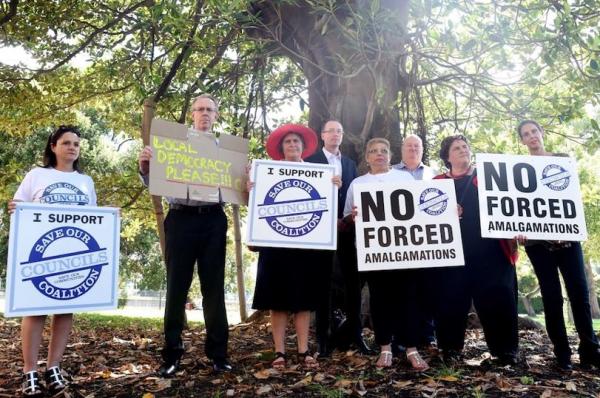January 2023
In some local governments, the forced mergers of 2016 are very unpopular, and the groundswell of support for demerging and returning to the former councils has not waned over time. The Government sought to create efficiencies and build strategic capacity through larger local governments, but ratepayers are concerned with the loss of representation, identity and voice that came with the mergers.

Morrison Low has been involved in various merger and now demerger analyses over the past six years, and this article reflects some of these observations.
While there was a high cost to most mergers (often in excess of the government grants), many councils that merged were able to generate operational savings or efficiencies. Unfortunately, some of this success was disguised by new costs (policy decisions to equalise services and service levels across former councils), or other costs imposed on local government through cost shifting or new legislative obligations. These changes make it difficult for councils to be compared with their former selves.
While many would argue that the cost of a merger is too high, the problem is it is harder to unscramble the omelette than to build one. In a merger, there is an organisation that can continue to function for a long period with two sets of data, two workforces, and two sets of policies and processes until they can be put together over time.
To demerge requires the new councils to be fully operational from day one as the switch is turned on and turned off to old the merged council. This means the council needs to have staff be able to collect revenue and rates, pay suppliers and staff, respond to enquiries, initiate actions and deliver services independently on commencement. While most of this can naturally and seamlessly transition, there are two prerequisites that take time to put in place, that is systems and people.
The complexity around separating systems should not be underestimated. Most merged councils took between one and two years to build and test combined corporate systems. They combined units of data together, merged accounting structures, rating, records, document management and customer systems. New corporate systems need to be created and data separated so that on day one, the new Councils can operate in accordance with the legislation. If it took one to two years to merge systems, then we need to plan for it to take that long to unmerge them. Could an entity provide a custodianship of the former corporate system and provide services? Possibly, but these arrangements have been very unsuccessful in the past and not without risk. The liability still falls on the new councils to collect, store and use information to operate in accordance with legislation.
The second challenge is separating staff. The mergers showed us how mobile good staff were and rather than wait for their fate to be determined, they sought out new roles with greater security. Staff need to know where they are going, if they have a choice into what roles, and be ready and willing to move from a larger organisation to a smaller organisation on day one. How will this affect them, and what options do they have? What if they do not want to go and have choices in the current employment market? For many staff, the process will be relatively simple, they will still grade the same road or mow the same grass. However, where economies of scale have been created with some roles reducing or resources are scarce (as it is currently recruiting planners, engineers and accountants), it becomes more difficult. The process to allocate these resources out to the new councils can be controversial. To be fully operational on day one, and recruitment of key role gaps (in a challenging employment market) or training staff require time and planning.

Finally, the new councils are likely to face increased costs when they are re-established. They are likely to need new staff to perform functions that the former councils did not undertake and are now mandated. They will have incurred new costs (such as the emergency service levy) or increased costs for higher service levels, and the rating harmonisation process may have adjusted the rating burden between communities, meaning the rating base will be lower in one or more communities to fund any increased costs.
It is costly to merge but once merged it is also costly to demerge, and communities need to be aware of this. Is the cost worth the benefit? How do you value local representation? Will the demerger be able to deliver on expectations? Councils need to be open and honest in outlining these potential costs, and communities will need to be accepting that there is a likely cost to higher representation. As while the State Government has agreed to fund demerger costs, there will likely be ongoing costs that will impact ratepayers.
Article written by Stephen Bunting on 25/01/2023